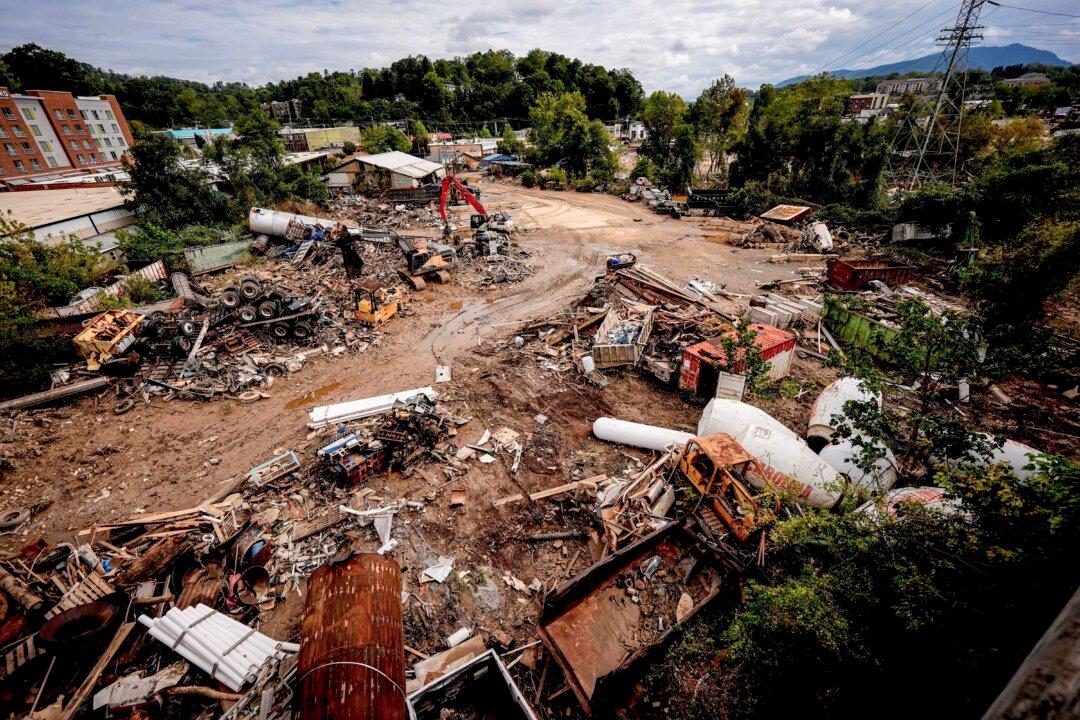A federal health agency has invoked a wartime act to facilitate the cleanup of North Carolina’s Baxter International medical facility, the largest manufacturer of certain intravenous (IV) solutions in the United States, after it was damaged by Hurricane Helene.
Baxter International Inc. said in September that it closed its North Cove facility in Marion, North Carolina after the hurricane brought “unprecedented rain and extensive flooding.”





